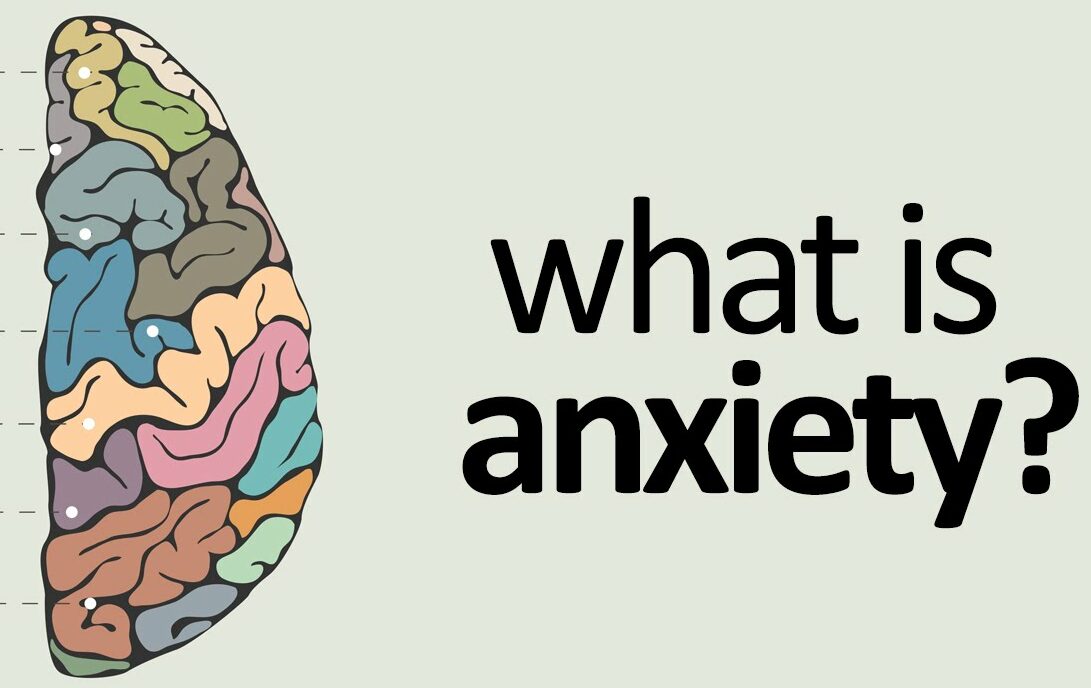Do you feel easily irritated and anxious? If so, you are not alone. Irritability and anxiety are two of the most common psychological problems in the world. In this blog post, we will explore the relationship between irritability and anxiety. We will look at the symptoms of each condition, as well as treatment options.
Contents
What Is Irritability?

Irritability is a feeling of being easily annoyed or made angry. It’s natural to feel irritable from time to time. However, some people feel irritable more often than they’d like. This can be a sign of an underlying health condition, such as anxiety.
Irritabilty is also a common symptom of anxiety. Irritability is one of the most common symptoms of anxiety, along with worry, nervousness, and restlessness.
Sometimes, people with anxiety may not even realize that their irritability is due to anxiety. They may just think that they’re naturally a “cranky” person.
What Is Anxiety?

Anxiety is a normal emotion that we all experience at times. It’s what we feel when we worry about something that might happen in the future. Everyone experiences anxiety to some degree. However, some people experience anxiety more frequently and intensely than others. When anxiety becomes so frequent and intense that it interferes with your daily life, it may be a sign of an anxiety disorder.
There are many different types of anxiety disorders, including generalized anxiety disorder, social anxiety disorder, and panic disorder. People with anxiety disorders often have other mental health conditions, such as depression.
In addition to irritability, other common symptoms of anxiety include worry, nervousness, and restlessness. People with anxiety may also experience physical symptoms such as a racing heart, sweating, and trembling.
What Is the Relationship Between Irritability and Anxiety?
There is a strong relationship between irritability and anxiety. People who have anxiety are more likely to also have irritability. And people who have irritability are more likely to also have anxiety.
The relationship between anxiety and irritability is bidirectional. This means that not only does anxiety increase the risk of irritability, but irritability also increases the risk of anxiety.
People with anxiety may be more likely to have irritability because anxious thoughts and feelings can be overwhelming and difficult to manage. This can lead to feeling easily annoyed or made angrily.
People with irritability may be more likely to have anxiety because being in a state of constant irritation can be stressful and exhausting. This can lead to worrying about things that might happen in the future.
The relationship between anxiety and irritability can be a vicious cycle. Anxiety can lead to irritability, which can then lead to more anxiety. This cycle can be difficult to break out of without treatment.
If you’re struggling with anxiety and irritability, it’s important to seek help from a mental health professional. They can provide you with the tools and resources you need to manage your symptoms and live a healthy, happy life.
Can Irritability and Anxiety Impacts Anyone?

The impacts of these two issues can vary from person to person. Some people may experience very mild symptoms while others may find it difficult to cope with the symptoms daily.
Some of the impacts of these two issues are:
Problems at School or Work
Anxiety and irritability can make it hard to focus or be productive at school or work. This can lead to falling behind in class or at work, which can further increase anxiety and irritability.
Difficulty Sleeping
People who are anxious or irritable may have trouble falling asleep or staying asleep. This can lead to feeling tired during the day, which can worsen anxiety and irritability. Sometimes, people may turn to alcohol or drugs in an attempt to self-medicate, which can lead to addiction and other problems.
Relationship Problems
Irritability and anxiety can strain relationships with family, friends, and romantic partners. People who are anxious or irritable may withdraw from social activities or have outbursts that alienate others. This can make it difficult to maintain healthy relationships.
Poor Physical Health
Anxiety and irritability can take a toll on physical health. These emotions can cause muscle tension, headaches, stomach problems, and chest pain. Chronic anxiety and irritability can also lead to high blood pressure and an increased risk of heart disease.
Suicidal Thoughts
Anxiety and irritability can sometimes lead to suicidal thoughts. If you or someone you know is having suicidal thoughts, it’s important to get help from a mental health professional or hotline immediately.
If you are experiencing any of these impacts, it’s important to seek help from a mental health professional. With treatment, it’s possible to manage anxiety and irritability so that they don’t have such a negative impact on your life.
How To Treat Irritability And Anxiety?

These two issues are common emotions that people experience. While they are not always pleasant, they are generally normal and manageable. However, when these emotions become overwhelming or interfere with daily life, it may be time to seek treatment.
There are many ways to treat these two issues. Medication, therapy, and lifestyle changes can all be effective in managing symptoms.
Medication
One of the most common treatment methods for these two issues is medication. There are many different types of medications that can be used to treat these emotions. The most common type of medication is antidepressants. Antidepressants are generally safe and effective in treating irritability and anxiety. However, they can have side effects, so it is important to talk to a doctor about the risks and benefits before starting any medication.
These medications are often used in conjunction with therapy. However, there can be many side effects of antidepressants, so always speak with a doctor before starting any medication.
Therapy
Therapy is another common treatment method for these two issues. There are many different types of therapy, but all aim to help people understand and manage their emotions. Cognitive-behavioral therapy (CBT) is one of the most effective forms of therapy for treating these emotions. CBT teaches people how to identify and change negative thought patterns that contribute to irritability and anxiety.
Other therapies are :
Psychodynamic Therapy
Another therapy is psychodynamic therapy. Psychodynamic therapy is based on the belief that our emotions are shaped by our past experiences. This type of therapy can help people understand the root cause of their irritability and anxiety.
Dialectical Behavior Therapy
Dialectical behavior therapy (DBT) is another effective form of therapy for treating these emotions. DBT is a type of cognitive-behavioral therapy that emphasizes the importance of accepting both positive and negative emotions. DBT teaches skills such as mindfulness and emotional regulation that can help people healthily manage their emotions.
Self-Care
Another treatment method of self-care. Self-care means taking care of oneself emotionally and physically. This can include practices such as yoga, meditation, and journaling. It is important to find an activity that relaxes and calms the mind and body.
Lifestyle Changes
Making lifestyle changes can also help manage irritability and anxiety. Exercise is a great way to reduce stress and improve mood. Eating a healthy diet, getting enough sleep, and reducing alcohol intake can also help reduce symptoms of these emotions.
Support Groups
Sometimes, it can be helpful to talk to others who are going through similar experiences. Support groups provide a space to share experiences and offer support to one another.
These support groups are confidential and allow people to share as much or as little as they feel comfortable with.
If you are struggling with irritability and anxiety, know that you are not alone. There are many resources available to help you cope with these emotions. Talk to your doctor about what treatment options are best for you.
Conclusion
Irritabilty and anxiety are two very common psychological disorders that can have a huge impact on someone’s life. While there are many similarities between the two, there are also some key differences. It is important to be aware of both to better understand and manage them.
Irritability is characterized by a feeling of agitation or frustration that is often accompanied by angry outbursts or aggression. Anxiety, on the other hand, is characterized by feelings of fear, worry, and unease that can lead to physical symptoms like a racing heart or sweating.
Both disorders can be extremely debilitating and cause significant distress in sufferers. However, with proper treatment and self-care, it is possible to manage them and live a full and happy life.
Hope this article was of help to you! If you are suffering from mental health disorders, you may seek help from Therapy Mantra. We have a team of highly trained and experienced therapists who can provide you with the tools and skills necessary for overcoming mental health disorders. Contact us today to schedule an online therapy or download our free Android or iOS app for more information.


